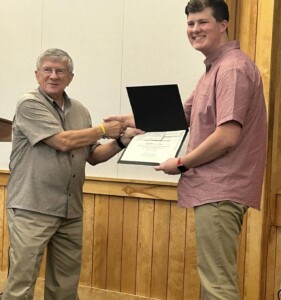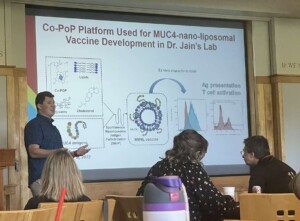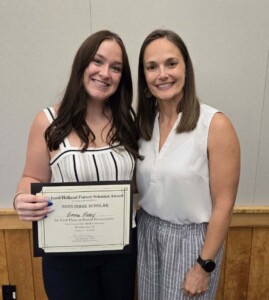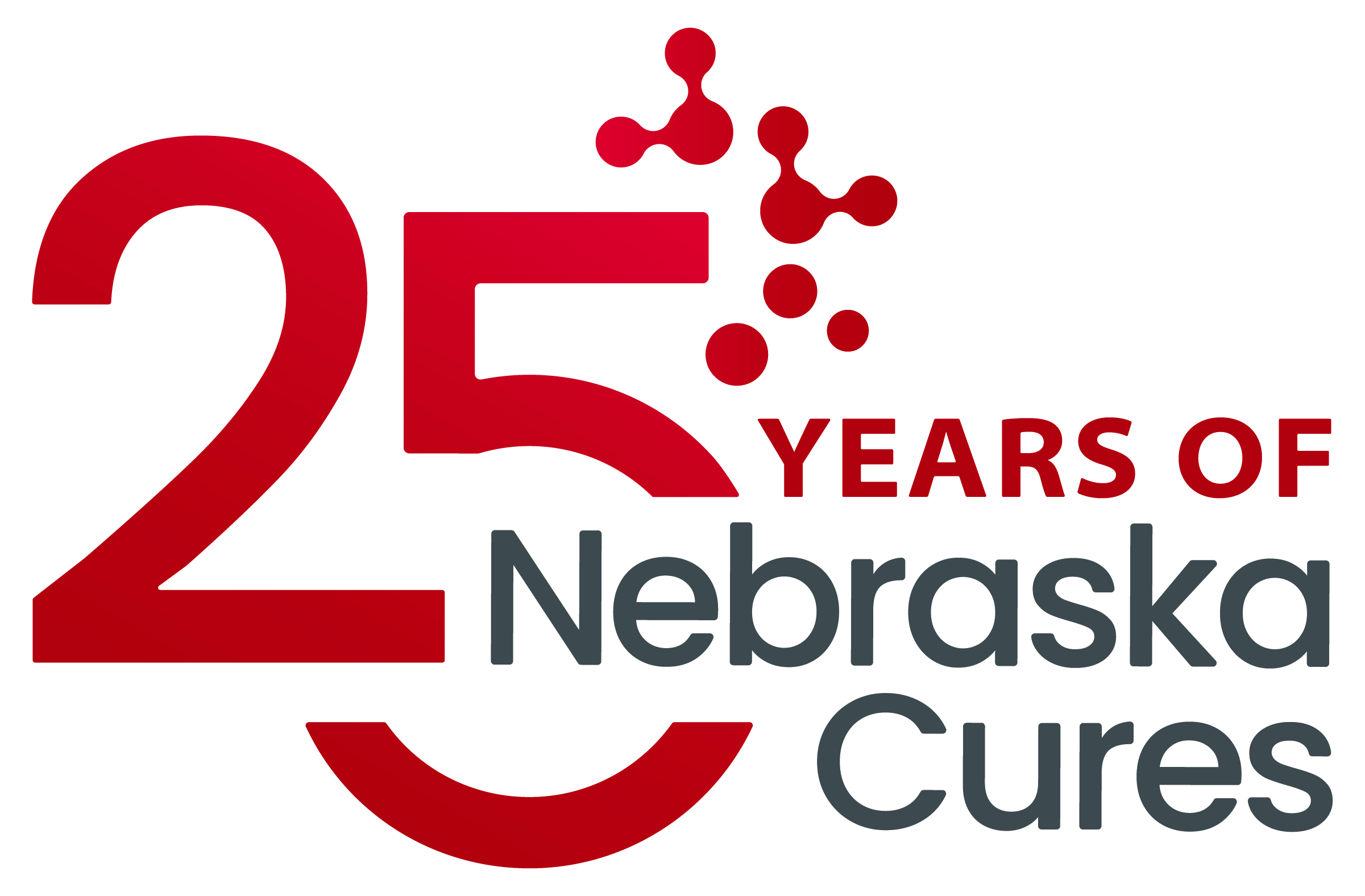 Ever since he was a kid, University of Nebraska Kearney junior Nate Lilla wanted to go into a career where he helped people. He thought he’d become a physician until he took a class on organic chemistry and anatomy. He realized he liked the chemistry piece, but not anatomy.
Ever since he was a kid, University of Nebraska Kearney junior Nate Lilla wanted to go into a career where he helped people. He thought he’d become a physician until he took a class on organic chemistry and anatomy. He realized he liked the chemistry piece, but not anatomy.
Lilla started working in Dr. Michael Moxley’s lab and realized he really enjoyed it. Now, he wants to pursue a PhD, have his own lab someday, and train the next generation of scientists to think critically and learn skills.
His academic advisor, Dr. Kim Carlson, recommended he apply for the INBRE program. INBRE is a National Institutes of Health funded program designed to create a biomedical research infrastructure that provides research opportunities for undergraduate students from around the state and serves as a pipeline for those students to continue into graduate research.
 INBRE holds a conference every August that includes a research presentation competition. Nebraska Cures honors 10 students who excel in the competition with Holland Future Scientist Awards ranging from $700 to $350 per student. Lilla placed first in the oral presentation category sharing his work with pancreatic cancer research.
INBRE holds a conference every August that includes a research presentation competition. Nebraska Cures honors 10 students who excel in the competition with Holland Future Scientist Awards ranging from $700 to $350 per student. Lilla placed first in the oral presentation category sharing his work with pancreatic cancer research.
“When David Crouse said my name and that I was in first place, a light bulb went off over my head saying ‘I think I’m in the right field. This is where I’m going,’” said Lilla.

Emma Foley, a senior biochemistry major at Creighton University, placed first in the poster presentation category. She is currently applying for immunology or pathology graduate programs.
Foley got her start in Dr. Lynne Dieckman’s lab and worked on genome instability and the binding between two proteins. Foley learned about Dr. Dieckman because she had recently received major funding for her research.
Dr. Dieckman encouraged Foley to apply for INBRE, and she jumped at the opportunity. Participating in INBRE and winning a Holland Future Scientist Award has been deeply meaningful to her.

“It is really exciting because at the undergraduate level, most of us have only been doing research for one or two years. It is hard to feel confident that you know what you are talking about, especially when you are presenting to a room of faculty and PhD candidates. It can be really intimidating,” said Foley.
“Getting that recognition is really encouraging. In research, a lot of times experiments don’t work, and that can be discouraging. So being able to present and get that positive feedback told me I really do like what I’m doing, and I want to keep going.”
